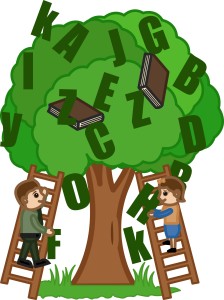 As teachers, we know that not everyone learns the same way. Some people are auditory learners who do very well in a situation where the teacher lectures. Others are visual learners who must see something to comprehend. If you are a good reader you can succeed as a visual learner. If you are not a good reader then you might be helped by seeing pictures or having a drawing to show you a concept. Kinesthetic (tactile) learners learn actively. They do well manipulating objects and trying things for themselves. About two-thirds of today’s learners are visual or visual-kinesthetic learners. How do we best serve them?
As teachers, we know that not everyone learns the same way. Some people are auditory learners who do very well in a situation where the teacher lectures. Others are visual learners who must see something to comprehend. If you are a good reader you can succeed as a visual learner. If you are not a good reader then you might be helped by seeing pictures or having a drawing to show you a concept. Kinesthetic (tactile) learners learn actively. They do well manipulating objects and trying things for themselves. About two-thirds of today’s learners are visual or visual-kinesthetic learners. How do we best serve them?
I am going to share with you two personal experiences to explain why learning styles matter. Before I discuss those experiences I hope that those reading this realize that although your employer may not give you directions that fit your learning style, if you are aware of how you learn best, you can make adaptations in order to be successful.
Looking back at my high school experience, I can think of one class – 10th grade history — where knowing my learning style would have allowed me to keep my A-B average for the year. Mrs. Conrad was a very traditional teacher. She gave reading assignments from our text and lectured from notes during class. She never wrote anything on the board. I had trouble taking notes in outline form as she required because I couldn’t write in outline format as fast as she lectured. I would have been fine if her tests had been based on the textbook alone. Unfortunately for me, the tests were made up of questions from both the text and her lectures questions. I carried a C average in that class for the entire year. Had I known then that I am a visual learner; I would have borrowed notes from a classmate during study hall to verify that my notes were accurate. Alas, 10th grade history marked the only time in my high school experience where I received a C.
By the time my first great niece, Ari, was born I had had a great deal of training in learning styles. I decided to see if I could determine her learning style at an early age. One holiday when Ari was four months old, I noticed that she was watching all of the adults as they were eating hors d’oeuvre. She appeared to be taking mental notes for future reference. Through her first year of life she continued to watch everything around her. One day just before her 2nd birthday I noticed that she had hooked her sunglasses onto the neckline of her top. When I wondered aloud where she had learned that, her mother’s response was – from you. I started to laugh because I was the only person that she saw often who had a habit of doing that.
Ari entered elementary school in a district that does a very good job of differentiating instruction. It was to her advantage the she had learned to read before entering first grade. She has become excellent at asking to “see” things again until she gets the concept. Ari is also very good at using computer resources to “see” things repeatedly until she grasps the idea. Ari and I have also discussed the fact that both of us remember many things in picture form. Because she knows that she needs to see things to retain them she knows how she learns even if she doesn’t know what her learning style is called. Ari is going into 4th grade in September and knowing that she needs to “see” things will make the upper elementary grades easier for her.
In conclusion, while it is true that our employers will not adapt the directions that they give us to our learning style, if we know how we learn we can adapt in a manner that suits our learning style. Differentiating instruction allows all of our students to learn in the manner that is best for them. It leads to more children being successful and also produces more useful employees who can make adaptations when they need to.
If you are curious about your learning style I highly recommend taking the tests at the links below.
This site will tell you if you are an auditory, visual, or tactile learner.
This site goes into more detail about combination learning styles like visual-tactile.





Leave a comment